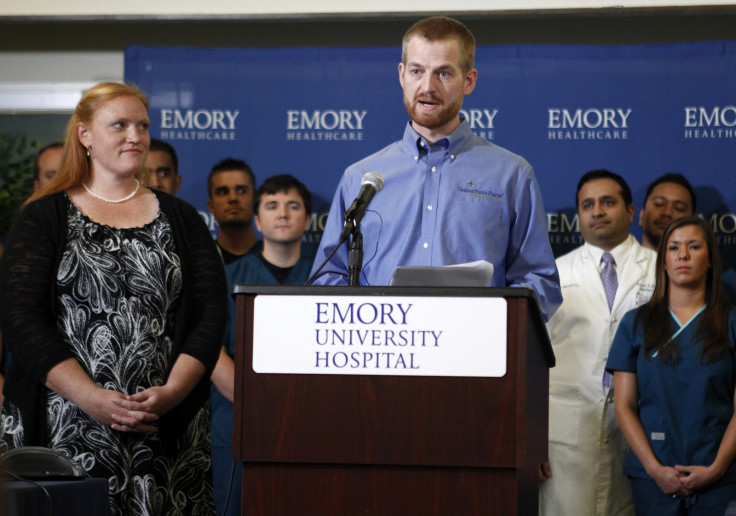Ebola: American Aid Workers Discharged From Atlanta Hospital

The two American aid workers infected with Ebola and treated at Emory Hospital in Atlanta have been discharged after recovering completely from the deadly disease, reports CBS News.
Calling it a "miraculous day", Dr Kent Brantly told a news conference: "I am thrilled to be alive, to be well, and to be reunited with my family. As a medical missionary I never imagined myself in this position."
He was speaking after his discharge from the hospital on Thursday. His co-worker Nancy Writebol was discharged on Tuesday. Both had been kept in isolation for three weeks at the infections unit of the hospital after contracting the disease when treating patients in Liberia.
The Centre for Disease Control, which provided consultation to the healthcare team at Emory University Hospital and tested the patients, confirmed that they no longer had the Ebola virus.
The CDC statement also made clear that contact with the recovered patients does not pose a risk. "Individuals who recover from Ebola are not contagious as far as transmitting the virus through close personal contact with blood or body fluids such as urine, faeces, sweat, or vomit is concerned," the CDC statement said.
Both the Americans had been given doses of the experimental drug ZMapp, but their recovery cannot be attributed to the drug with any certainty, as there have been cases of survival in the present outbreak due to the body's natural immune response. The survival rate has been low with only one out of 10 emerging alive after infection.
Dr Bruce Ribner, medical director of the infectious disease unit at the hospital, also assured the public that he and his team had taken all appropriate safety precautions before discharging the patients.
However, there are chances that a patient may continue to shed the virus even after the infection has subsided. According to the World Health Organization, in one instance, a lab worker who contracted Ebola on the job and survived was found to have traces of the virus in his semen 61 days after the initial infection.
No such cases have been documented in the current outbreak.
The death toll has surpassed 1,300 across the West African nations and is rising most quickly in Liberia, which now accounts for at least 576 of the fatalities, the WHO said.
© Copyright IBTimes 2024. All rights reserved.





